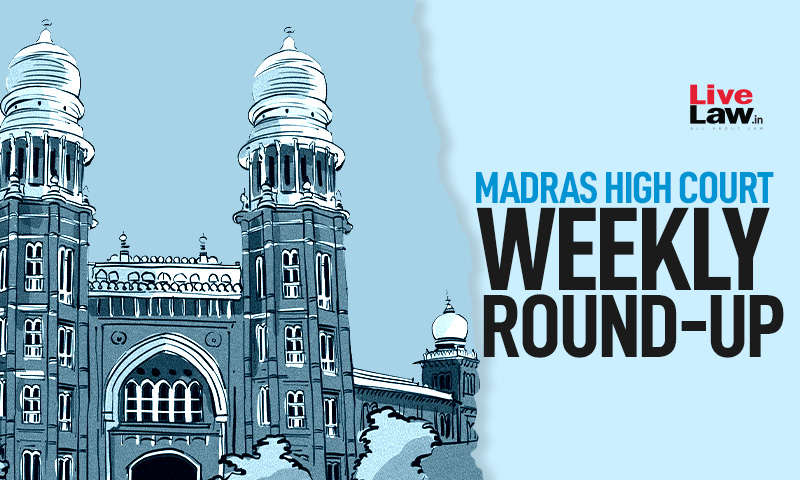Madras High Court Weekly Round-Up: July 18 2022 To July 24 2022
Upasana Sajeev
25 July 2022 10:00 AM IST

Next Story
25 July 2022 10:00 AM IST
A weekly round-up of important cases from Madras High Court and its subordinate courts. Citations: 2022 LiveLaw (Mad) 308 To 2022 LiveLaw (Mad) 316 NOMINAL INDEX M/s.R.K.Emu Farms and others v. State Represented By Inspector of Police, 2022 LiveLaw (Mad) 308 K Vijayakumar v. State, 2022 LiveLaw (Mad) 309 The Assistant Commissioner of Customs v. S Ganesan, 2022...
